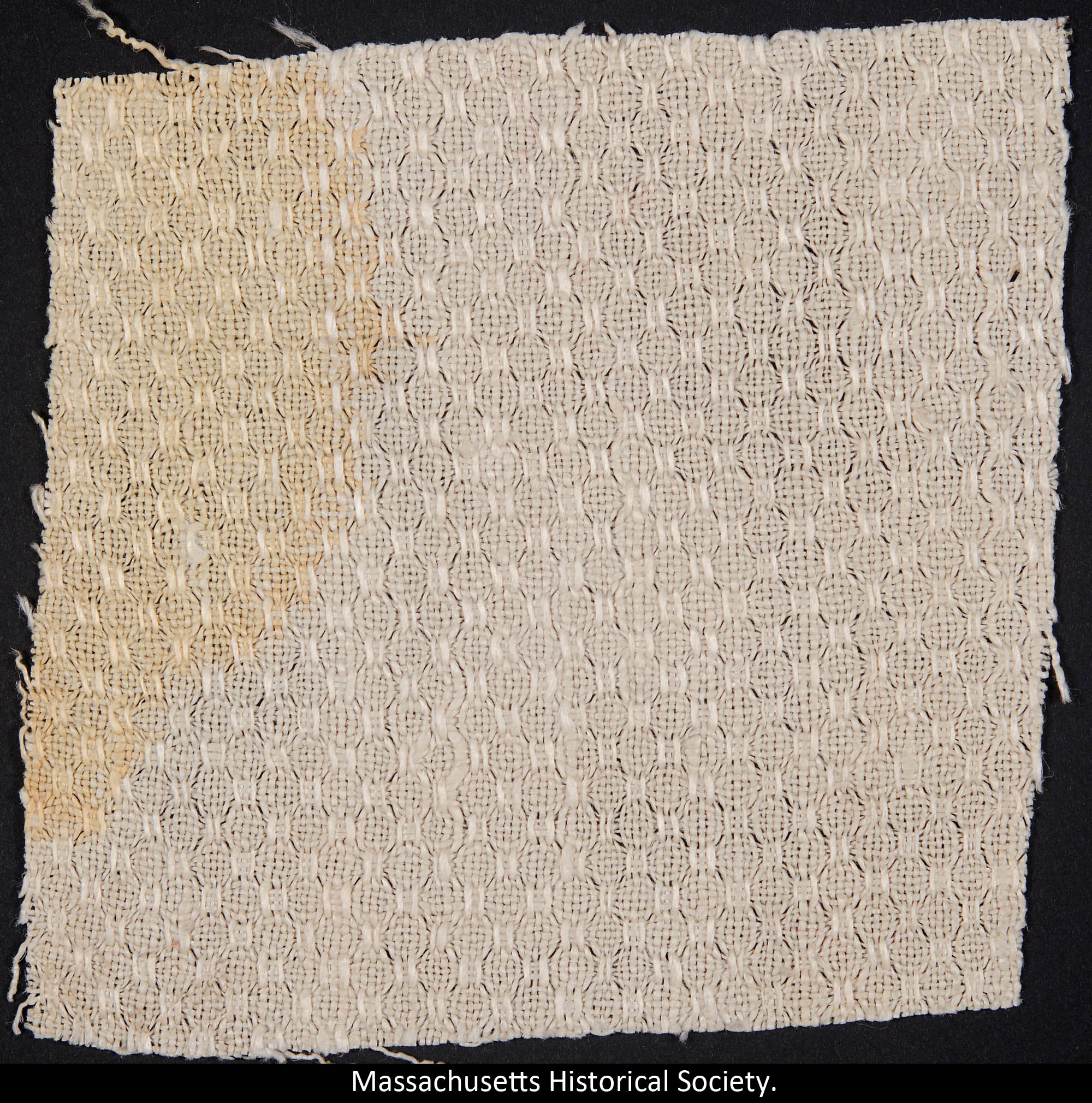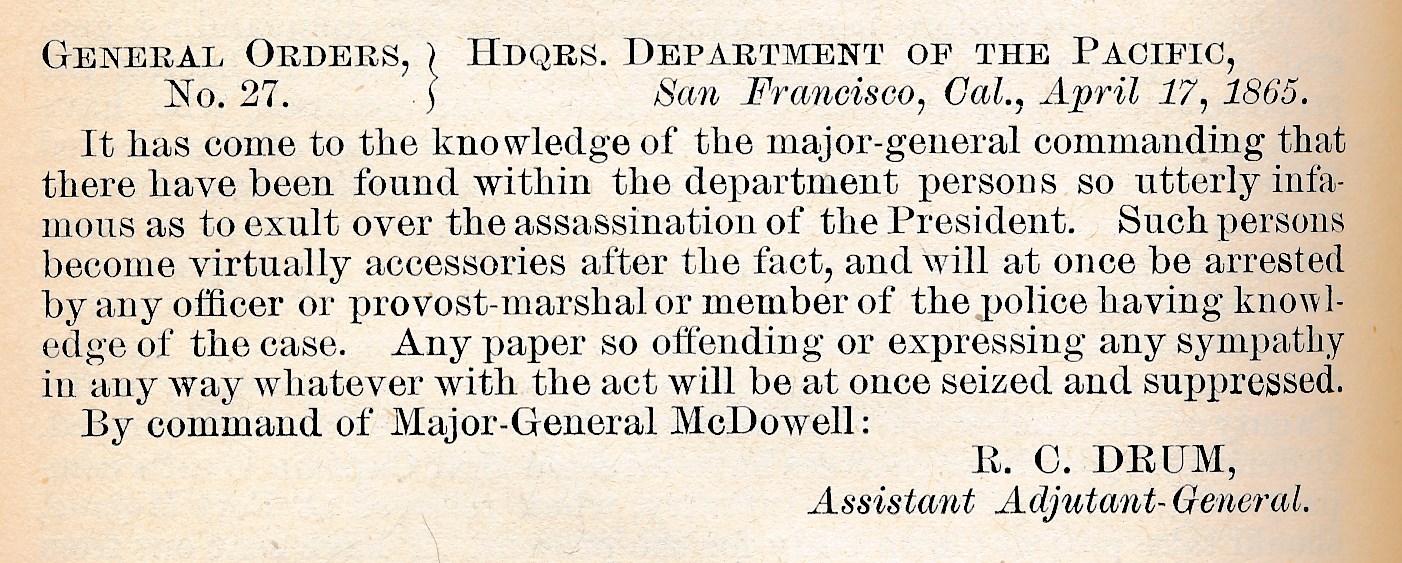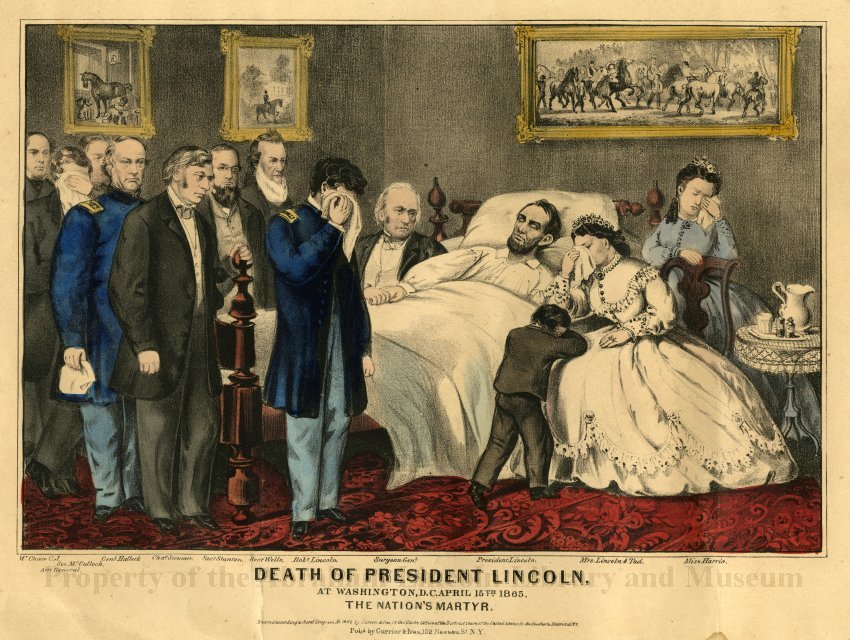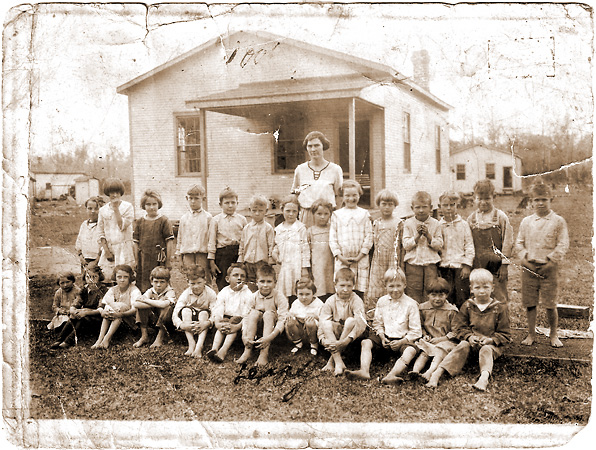 |
| Towel Fragment with Lincoln's Blood (Source: MA Historical Society through Remembering Lincoln Project) |
The process has been impressive to watch. The goal of Remembering Lincoln is to connect as many documents and artifacts tied to the Lincoln Assassination as possible. Rather than collecting them all at Ford's for their patrons to see, they've made patrons of everyone on the World Wide Web. By making it as open sourced as possible, we are able to see into museum and private collections from across the country and the world.
 |
| General Orders No. 27-banning the public celebration of Lincoln's murder (Source: Private collection through Remembering Lincoln Project) |
My experience of the last decade has been that museums and historical societies and research universities don't always play nice in each other's sandbox. There are just so many dollars, resources and media to go around. What has impressed me is how they've managed to accomplish Remembering Lincoln while at the same time keeping their own institutional identities. As a small cog in the process, I've gotten to see some of what went on behind the curtain to achieve this. As a result, you will find Remembering Lincoln impressively sourced. The research teacher in me says, YES! Wherever they can, Ford's had credited the sponsoring organization. That means students don't have to waste time clicking on hyperlink after hyperlink to find who actually owns each artifact, photograph, and document.
 |
| Lithograph-"Death of President Lincoln" (Source: Lincoln Memorial University though Remembering Lincoln Project) |
As an educator, they asked me to provide a lesson plan or two for the site. The site was designed for the casual and the curious all the way to the historian or history teacher. I have two lessons I've contributed. One is a close read of the book Chasing Lincoln's Killer by James Swanson. I wanted my kids to research the event but needed something to give them a baseline on the assassination. The book does that. We are in the middle of this lesson in my class and so I am tweeking the lesson as I go. The other lesson is a little more ambitious. Once they have this baseline, I am going to deputize them a Crime Scene Investigators. Each will be assigned a person, a place or object to research. They will prepare a White Paper on their findings and present to the class. On one of my walls will be a map and place to place documents and artifacts they've found as well as a place for questions and theories on who the assassin(s) is (are). At the same time, we will follow Booth's 12 day escape route and its manhunt as well as the Abraham Lincoln's funeral train in real-time (150 years later). One moves the assassin closer to his death at Garret's Farm and the other to the president's resting place in Springfield. One will get a tomb and a nightly commemoration of his place in history. The other a site on federal land prohibiting commemoration of any kind.

BTW-Yes, I am aware that Booth is buried in a family plot in Maryland.

